Be confident that these signs of ovulation while breastfeeding will definitely help you determine if your body is back to normal after childbirth.
Your body went through so much, and it’s still in shock. However, your body is still going through those changes. You’re still recovering from the delivery and pregnancy.
Also, you’re breastfeeding which can be exhausting and difficult. I will help you to learn more about your menstrual cycle and ovulation while breastfeeding. You will understand the significance of ovulation and menstruation.
Additionally, this article will help you to clear your mind and become more self-aware.
What Is Ovulation?
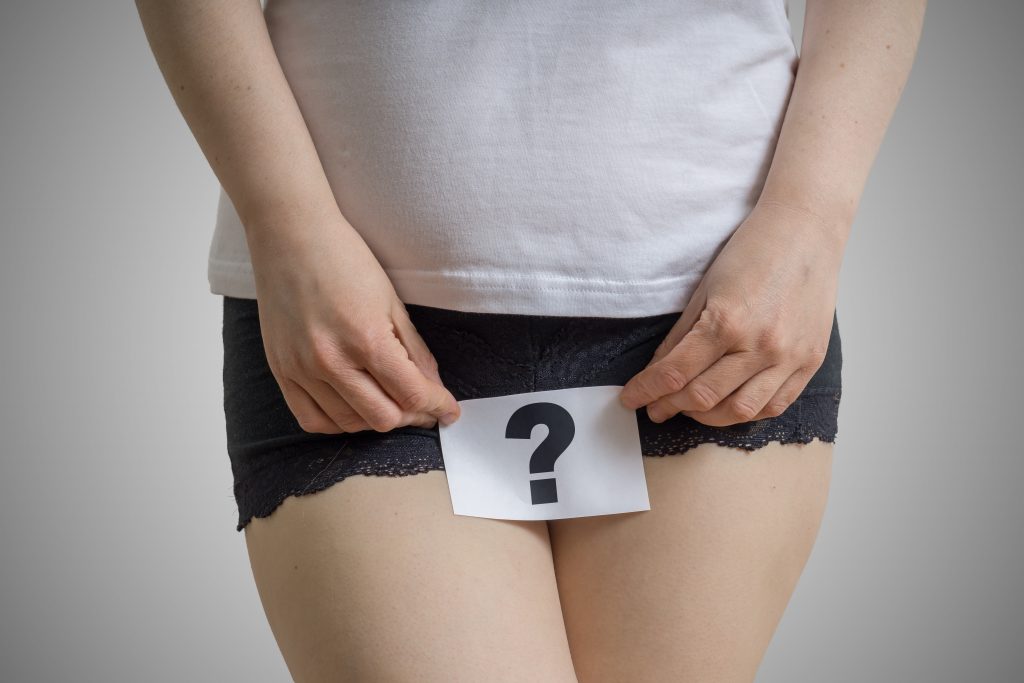
I would like to talk about ovulation and its definition, even if you already know what it is. Maybe you think you know it all, but unless you’re medically trained, I’m sure that some facts about ovulation, ovulation signs while breastfeeding and the menstrual cycle will surprise you.
It’s important to learn this by heart because it will help to understand your body.
Ovulation is a menstrual cycle phase when your ovaries release an egg that goes to your Fallopian tubes first and then to your uterus. Your egg stays in the Fallopian tube for 24-48 hours before fertilization.
Ovulation is a release of an egg from your ovary. Without ovulation, there is no possibility of getting pregnant. To understand the connection between ovulation and the menstrual cycle, I will explain the connection.
Menstrual Cycle
The menstrual cycle represents a time frame between two menstruations. Menstruation, also known as a period, is represented by bleeding from your uterus once a month.
The menstrual cycle can last between 21-40 days, and during those days there are certain hormonal changes in your body. Without a normal menstrual cycle, pregnancy is impossible.
Ovulation is one of the phases, that usually happens in the middle of your menstrual cycle, however, there are methods for checking that.
Your ovaries produce eggs; every month, one ovary sends one egg to your uterus through the Fallopian tubes. To create those eggs, the pituitary gland produces the follicle–stimulating hormone–FSH. During the cycle, the body releases estrogen and progesterone, which work on thickening the wall of your uterus – the endometrium.
These hormones are thickening the endometrium in case of fertilization. If by any chance, you had intercourse while you were ovulating, there is a chance for pregnancy.
If your egg is fertilized by sperm, it will attach itself to the wall of your uterus that will be ready for implantation. The endometrium is thick because of the many blood vessels created under the influence of hormones.
After the implantation, estrogen and progesterone are still working, and those blood vessels are turning into the placenta. The placenta is an organ that is present in your body only when you’re pregnant and it develops together with the baby. If the implantation happened, the placenta is developing, and the hCG hormone becomes present in your body.
However, if you didn’t have intercourse during your ovulation, the released egg will not be fertilized by sperm. In that case, the implantation won’t happen and that thickened wall of the uterus full of blood vessels, will start to peel and your menstruation/ bleeding will start.
Because of this, menstruation is a sign that there is no pregnancy. On the contrary, the missed period could be a sign of pregnancy.
I hope that this simple explanation will help you understand what ovulation is and why it’s important. During the pregnancy, there is no ovulation and no menstruation.
What Happens After Giving Birth?
After giving birth, your body starts to produce a hormone called prolactin. This hormone is responsible for breastfeeding since it induces lactation. When your body produces prolactin, it’s usually not producing estrogen and progesterone.
Since these hormones are essential to ovulate, breastfeeding is often considered natural birth control.
Unfortunately, this is not something that is 100% true in every case. It all depends on how long you’ve been breastfeeding, and are the levels of prolactin are high enough to suppress ovulation hormones. So, you have to be careful if you don’t want pregnant right away. Use some other contraceptive method.
Of course, if you do want to get pregnant, you don’t have to worry about birth control. Even though it’s your decision when to get pregnant, I would recommend waiting some time.
Your body needs some time to recover and trust me you need some time to figure out this whole mom thing. Don’t rush it and be patient.
Signs of Ovulation While Breastfeeding
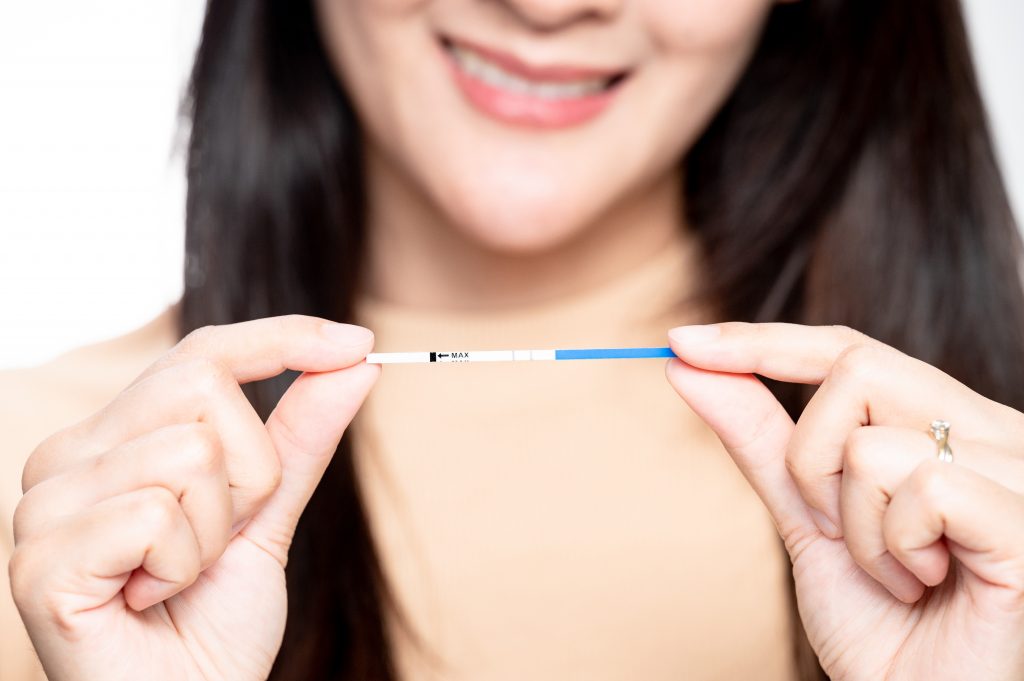
Since we’ve established that ovulation is possible while breastfeeding, it’s time to look for the ovulation signs. It won’t be hard, especially if you pay attention to your body.
Period
If you start to menstruate, it means that your ovaries are producing eggs again. That being said, it’s possible to stay pregnant again. Therefore, it would be good to find an effective method of birth control. Once again, you don’t have to protect yourself from the pregnancy, but your body will thank you if you let it heal for a little bit longer.
I want to mention that period after pregnancy can be different from the period before getting pregnant.
So, take care of yourself and pay attention to the amount of blood, duration of the period, and any other things you notice that are out of the ordinary. Don’t be afraid to inform yourself and ask your doctor. Sometimes women think that something is normal and they end up in a bad health situation.
Changes In Cervical Mucus
Cervical mucus is released from the cervix. It is used to determine the phase of your menstrual cycle since its texture is different depending on the phase. Cervical mucus is the most common tool to determine if you’re ovulating.
So, if you’re wondering if you can get pregnant again, your light and clear cervical mucus is one of the best signs of ovulation while breastfeeding. If you’re ovulating, the mucus will be transparent and “slippery”.
Temperature Rise
If you notice a slight temperature rise, it could mean that your body is going back to normal when it comes to ovulation and the menstrual cycle. Your temperature is rising because of the hormone progesterone. As I’ve said, progesterone is important for ovulation.
However, this is not one of the most valid signs of ovulation while breastfeeding, because your temperature can become higher for many other reasons. That’s why it’s important to listen to your body. If you feel that something is not right, go to your doctor’s office as soon as possible.
Cramping
If you’re experiencing cramps, that could mean that your body is working on establishing your menstrual cycle again. This is one of the signs of ovulation that will definitely remind you that it might be time to get your period again. Of course, these mild cramps won’t be painful, just a little bit uncomfortable.
Tender Breasts
Tender breasts can be one of the signs of ovulation when breastfeeding, but they can also be a result of breastfeeding itself. This sign is up to you to think about.
If you notice breast tenderness, but in a different way, it could mean that it’s not just from your breastfeeding. Again, the hormones are making your breast sore and sensitive which could mean that your ovulation cycle is starting.
A Libido Boost
A libido boost is one of the obvious signs of ovulation while breastfeeding. This happens because your hormone levels increase, boosting your desire to have intercourse.
This is the body’s natural way of nudging you to use your fertility. That’s why your sexual desire is higher while ovulating. Some women can notice all of these signs of ovulation while breastfeeding, while others can completely miss them.
If you’re in the other group, don’t feel bad. It’s hard to pay attention to yourself when you have a little human being to take care of. Sometimes you don’t have time to shower or eat, so it’s normal to miss these signs and symptoms.
Fatigue and Nausea
I am sure you remember those PMS symptoms. Headache, nausea, weakness… If you’re feeling like that without any specific reason, it could mean that you’re ovulating.
How To Protect Yourself From Pregnancy?
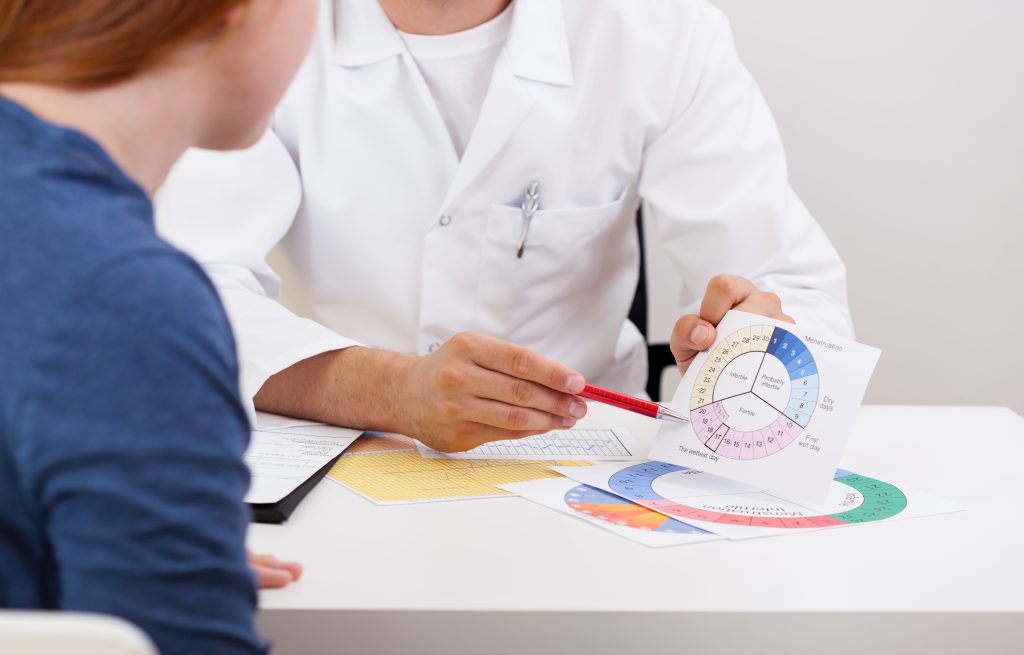
If you’ve understood that it’s possible to ovulate while breastfeeding, then you’re probably wondering what to use as a birth control method. To be honest, you can almost use everything you’ve used in the past. Of course, I don’t recommend any natural birth control methods.
Couples often use the method of interrupted intercourse – coitus interruptus. However, this method is not safe at all. Another unsafe, natural method is calculating your fertile days. This can lead to unwanted pregnancy.
After giving birth, it’s even harder to determine the phases of your menstrual cycle. That’s why using real and effective birth control methods is important.
I suggest using condoms or birth control pills. Beware, while breastfeeding you can only use birth control pills that only have progesterone. If you’re interested in this option, visit your doctor.
You will need a prescription and more importantly, you need to do some tests to see if it’s okay to take the pills.
Maybe you’re planning to have more children and feel bad that you’re trying to avoid it right now. But, don’t feel bad. Your children need a happy mom that’s not too tired or busy to take care of them.
It’s okay to take one step at a time. It’s okay to want to wait. Your body needs to heal. Just because your ovulation started doesn’t mean that your body is ready for another pregnancy.
This is even more important if your last pregnancy was difficult and risky. That being said, it’s okay to wait, and it’s okay to protect yourself in the process.
How To Track Your Ovulation While Breastfeeding?
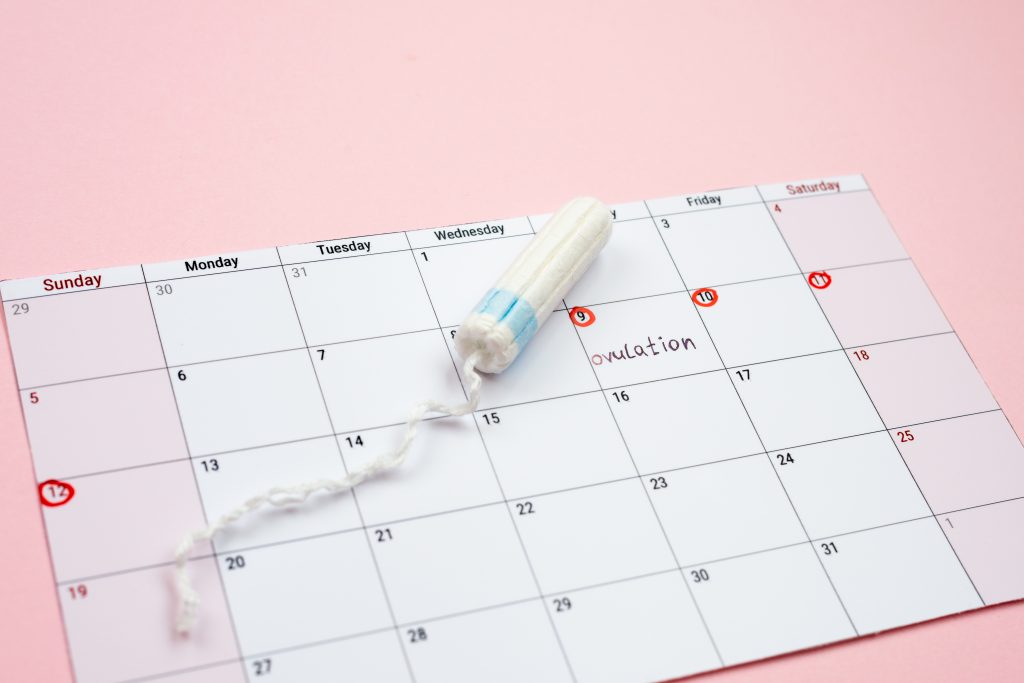
Ovulation calendar, swab. Concept of the regular menstrual cycle.
If the above signs of ovulation when breastfeeding aren’t enough for you to determine if your ovulation is, here again, there are some methods.
You could measure your basal body temperature – BBT. Basal body temperature should be measured every day. That way you will see on which days is starting to rise.
When it starts to rise, it means that ovulation is starting. Since this method is not 100% correct, you should combine it with the cervical mucus method. As I’ve said, both methods are good signs of ovulation when breastfeeding.
The cervical mucus method follows the changes in the appearance and texture of your cervical mucus. If you want to use this method, you will have to educate yourself a bit.
Before analyzing your mucus, gently clean the vaginal area and wash your hands. By using two fingers, feel around your vaginal area. If there isn’t any cervical mucus, if the area feels dry or just slightly damp, that means that you’re in the stage of low fertility.
If the mucus is sticky, white or yellow in color, thick, and non-stretchy, it means you will start to ovulate soon.
If the cervical mucus is clear, stretchy, and feels wet, that means you’re ovulating. If you’ve combined the BBT method and cervical mucus method, you will simply determine your ovulation period. Of course, there are some tests, strips, and similar things to purchase, but none of them is 100% effective.
If you’re having trouble following your ovulation or noticing the signs of ovulation while breastfeeding, ask your doctor to help you.
What If You’re Pregnant?
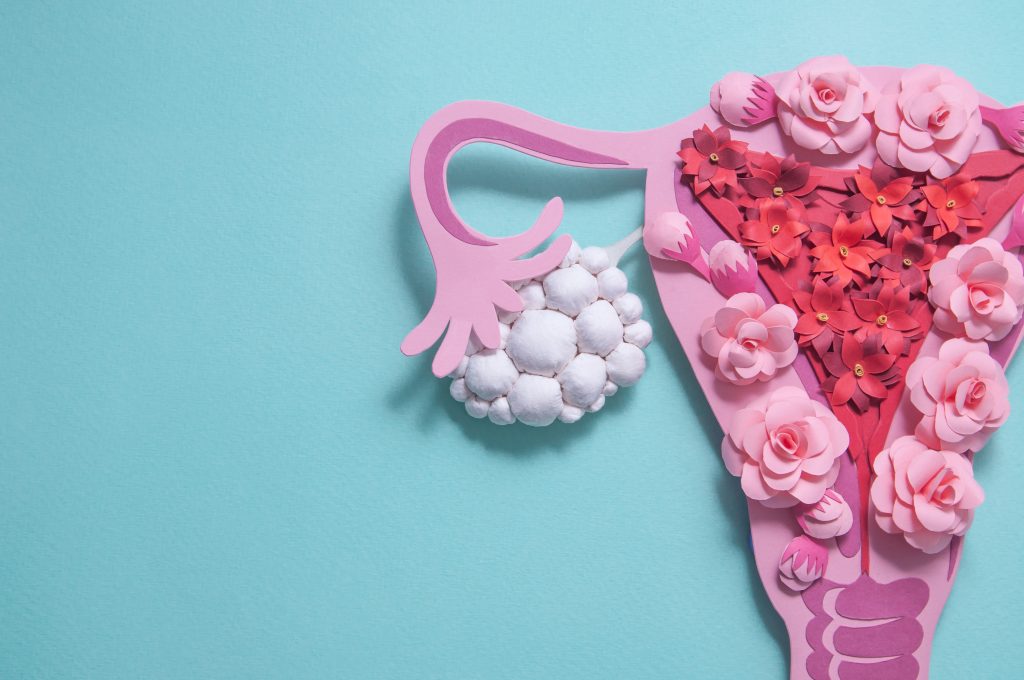
As I’ve said before, many women don’t look for the signs of ovulation while breastfeeding. Most of the people believe that breastfeeding is something that makes pregnancy impossible. Today, you’ve learned that it doesn’t have to be like that.
First of all, don’t worry. Make sure that you are pregnant, and do a few pregnancy tests. Go to the doctor and ask for a beta pregnancy test to determine if hCG hormone is in your blood.
Be 100% sure that you truly are pregnant. If the answer is positive, try not to panic. Of course, maybe this was a wanted pregnancy. In that case, congratulations and take care of your babies! Be in touch with your doctor, since there is a higher risk for you when two pregnancies are so close together, especially if you had a C-section.
However, since most women are not so interested in having another baby right away, I want to tell you to stay calm. It happens. It usually ends well for everyone. Yes, there are some health risks since you just had a baby and you’re pregnant again. Maybe you had a C-section and now you’re scared to death.
The first thing I want you to do is to talk with your doctor. I hope you have a good one because if your doctor scolds you or anything like that, go to someone else.
Right now, you need information, support, and guidance. It will be okay. You will get through this. You’re probably more worried about having two babies in the house. You’re wondering how to deal with that. Maybe you have more children. It’s unexpected and shocking.
As you know, mom’s love is something special and healing. Your kids need you to love them and to be happy. So, don’t worry, you will be a good mom. There will be days when you will feel like a failure.
Don’t spend too much energy feeling like that. Nobody’s perfect and it’s okay to ask for help. You’re not a superhero. You’re just a human being with weaknesses.
You will be a great mom and you will be happy that this happened. It’s hard to think like this in these moments of complete shock. But, you will see.
Another important thing is talking with your partner.
You’re sensitive right now.
You’re breastfeeding, you have a little baby that depends on you, and you’re pregnant again. Your body is a cocktail of hormones.
You need your partner to be strong for both of you.
You need someone to hold you. However, that may not happen immediately, and I want you to be okay with that.
Yes, your position is more difficult, but your baby has two parents. Your partner will be shocked and maybe the reaction to his information will be pretty bad. It’s important to be understanding.
Don’t say something you’ll regret. Take some time to process this, and then start making plans about everything. Just go with the flow. You never know what will happen, so relax.
Don’t beat yourself up.
Don’t feel bad. Most women don’t know a thing about the menstrual cycle or similar things connected to pregnancy.
The point is you’re not alone.
Women go through this every day, and they survive.
You will survive too.
You’re a woman holding your life in your hands.
You’ve got this.
You’ve Been Breastfeeding For A While Now

This article is an eye-opener when we talk about signs of ovulation when breastfeeding. This is mostly important to avoid early or unwanted pregnancy.
However, it’s possible that you’ve been breastfeeding your baby for more than 6 months, maybe even a year or two. And you’re still not ovulating.
In this case, you should see a doctor. It takes time for your menstrual and cycle to get back on track, but sometimes it takes too long.
Because of that, you should see a doctor if you have any problems with your menstrual cycle. Remember, the menstrual and ovulation cycle is not just about conceiving. It means that your hormones are well-balanced according to your age.
You’re still young to lose your period. So, if you’re missing your period for too long or you want to start working on another baby, it’s time to find solutions with your doctor.
Conclusion

You probably think that these signs of ovulation while breastfeeding are not definite and reliable. However, if you pay attention to all of them, I am sure you will notice what needs to be noticed.
Some women get pregnant and never learn about these things. And these things matter. You don’t have to learn all the medical terms and processes, but you should be able to understand some basics about your body functions.
Recognizing ovulation signs while breastfeeding and in general, are not just important for your fertility. Everything in your body is connected and everything should work properly.
This article will help you to notice some important ovulation signs while breastfeeding which will help you to take care of your family planning.
So, even if you’re having difficulties understanding some of these things, make an effort.
After all, you’re a parent now and it’s important to know some crucial things.
One day you will be able to help your children or someone else. Just imagine how easier it would be if everybody knew all about menstruation and the ovulation cycle.
Don’t feel bad that you didn’t know all of this before.
The important thing is that you want to learn.
Better late than never, right?
Hi all, I am Sidney, an accountant, a hobbyist photographer, and a mother to two sweet girls who are my motivation. I love sharing the tips and tricks I gained all these years I’ve been a mother. I hope it will help you!
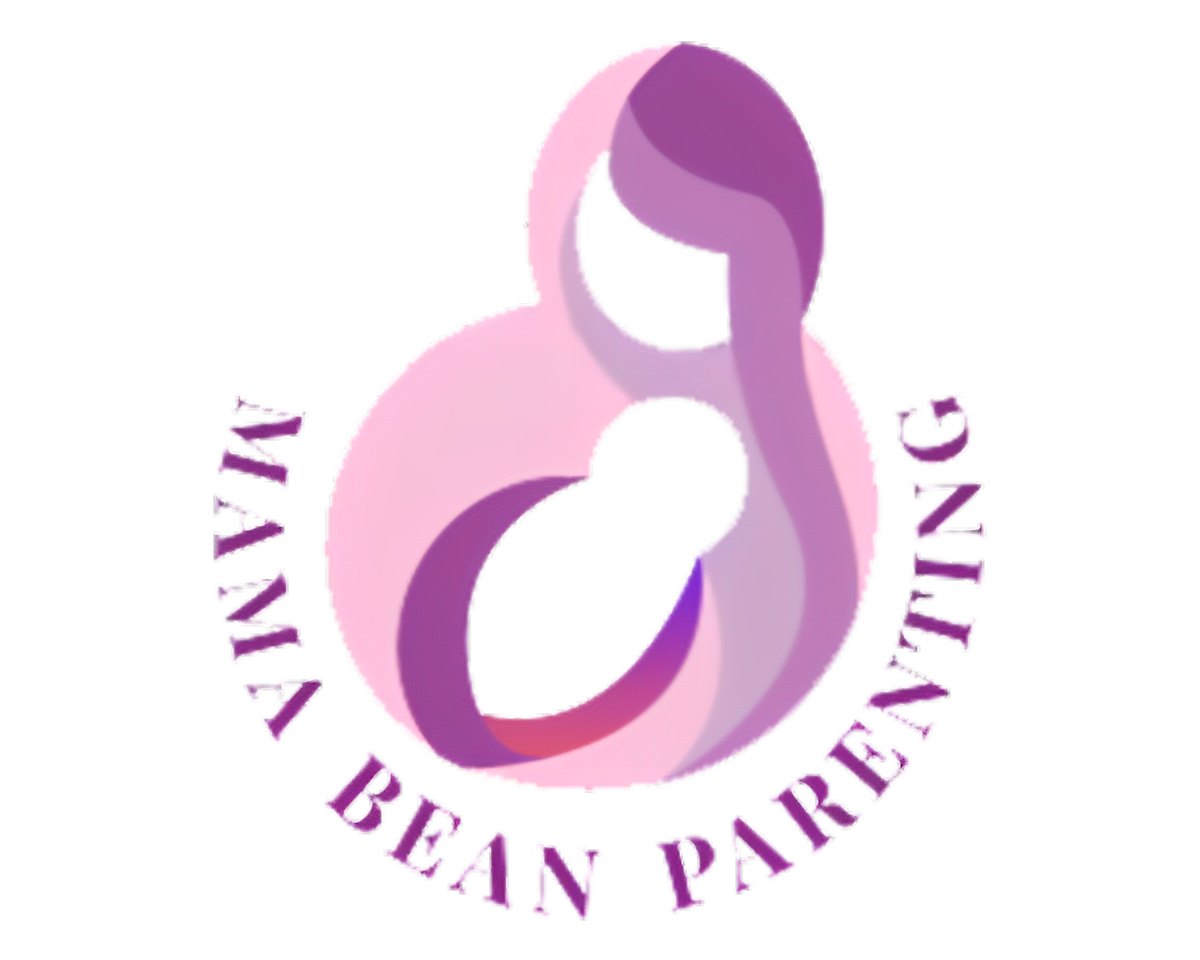

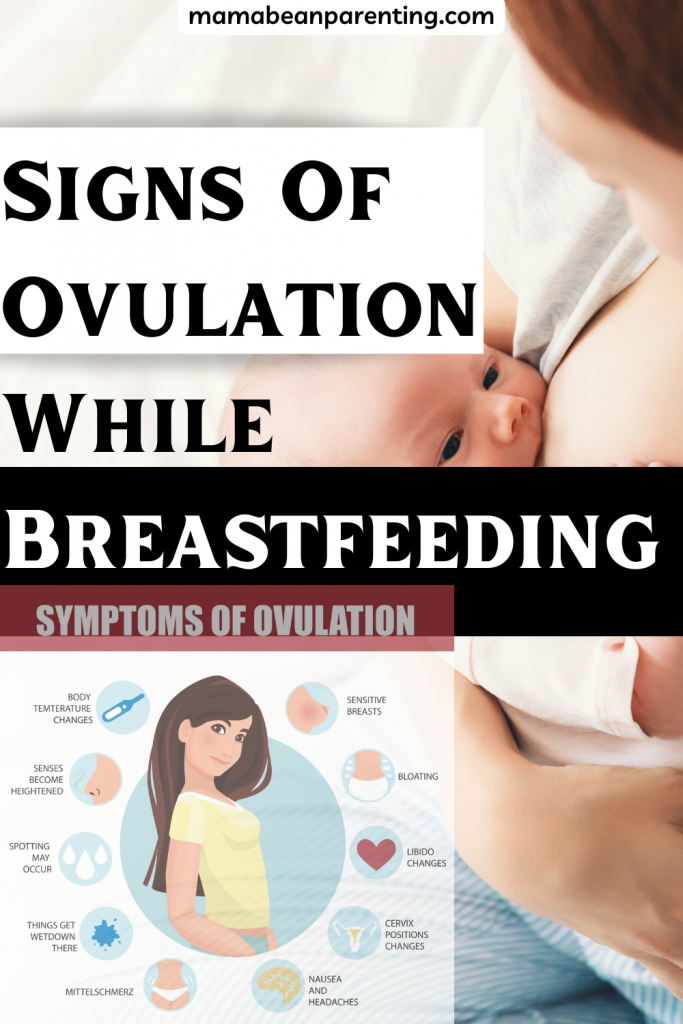
binance us registrácia
Wednesday 17th of July 2024
Thanks for sharing. I read many of your blog posts, cool, your blog is very good.
NFT en gate io
Tuesday 26th of March 2024
Reading your article has greatly helped me, and I agree with you. But I still have some questions. Can you help me? I will pay attention to your answer. thank you.
20bet
Monday 2nd of October 2023
I am currently writing a paper that is very related to your content. I read your article and I have some questions. I would like to ask you. Can you answer me? I'll keep an eye out for your reply. 20bet
The Truth About Breastfeeding: Does Breastfeeding Make You Hungry? • Mama Bean Parenting
Wednesday 18th of January 2023
[…] If you’re breastfeeding and are concerned about the amount of weight you’ve gained, talk to a doctor or a lactation consultant about it—but don’t cut calories to try and solve the problem. There might be a chance that you are preggo again! In that case, you should learn everything about signs of ovulation while breastfeeding. […]